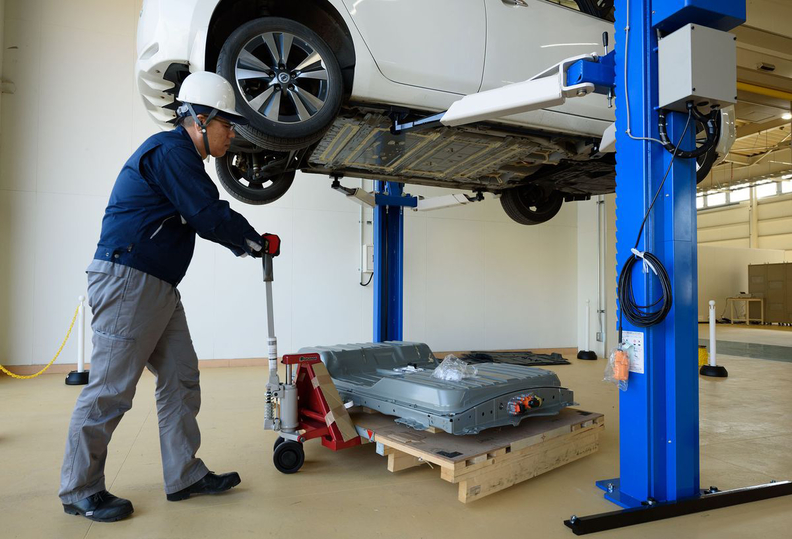To deliver an electric vehicle that's cheaper, safer and capable of traveling 500 miles on a single charge, the auto industry needs a breakthrough in battery technology. Easier said than done.
Scientists in Japan, China and the U.S. are among those struggling to crack the code of how to significantly boost the amount of energy a battery cell can store and bring an EV's driving range into line with a full tank of gasoline. That quest has zeroed in on solid-state technology, an overhaul of a battery's internal architecture to use solid materials instead of flammable liquids to enable charging and discharging. The technology promises major improvements on existing lithium ion packs, which automakers say are hitting the limits of their storage capabilities and may never hold enough power for long-distance models.
If it can be mastered, solid-state technology could help speed the demise of the gasoline combustion engine and potentially slash EV charging times to about 10 minutes from as much as several hours. The supercharger network built by Tesla Inc., now offering some of the fastest charge times, needs approximately 30 minutes to bring a depleted car to 80 percent.
"We don't see another way to get there without solid-state technology," said Ted Miller, senior manager of energy storage strategy and research at Ford Motor Co., which has studied various technologies aimed at delivering a more powerful EV battery. "What I can't predict right now is who is going to commercialize it."
Currently, the best prototype with solid-state batteries is only powerful enough to propel a one-person vehicle across a Toyota Motor Corp. parking lot near Japan's Mount Fuji. Car companies such as Daimler AG and Fisker Inc. are working on the task, as are a Chinese lithium giant, the French oil company Total SA, and spinoffs from the Massachusetts Institute of Technology and Stanford University. Fisker may conduct vehicle tests as early as this year, while Toyota and Daimler timelines extend into the 2020s.
The stakes are enormous. Adoption of EVs is already expected to fuel an exponential increase in lithium ion batteries, the reigning replacement for the internal combustion engine. The latest report from BloombergNEF found that electric buses and passenger cars accounted for 44 gigawatt hours of lithium ion battery demand in 2017 — and by 2030 that demand is forecast to surge to over 1,500 gigawatt hours per year. Anyone with a viable solid-state battery that can outperform lithium ion technology could gain the upper hand in a market for all EV batteries that will be worth about $84 billion by 2025, compared with about $23 billion now, according to UBS Group AG.


